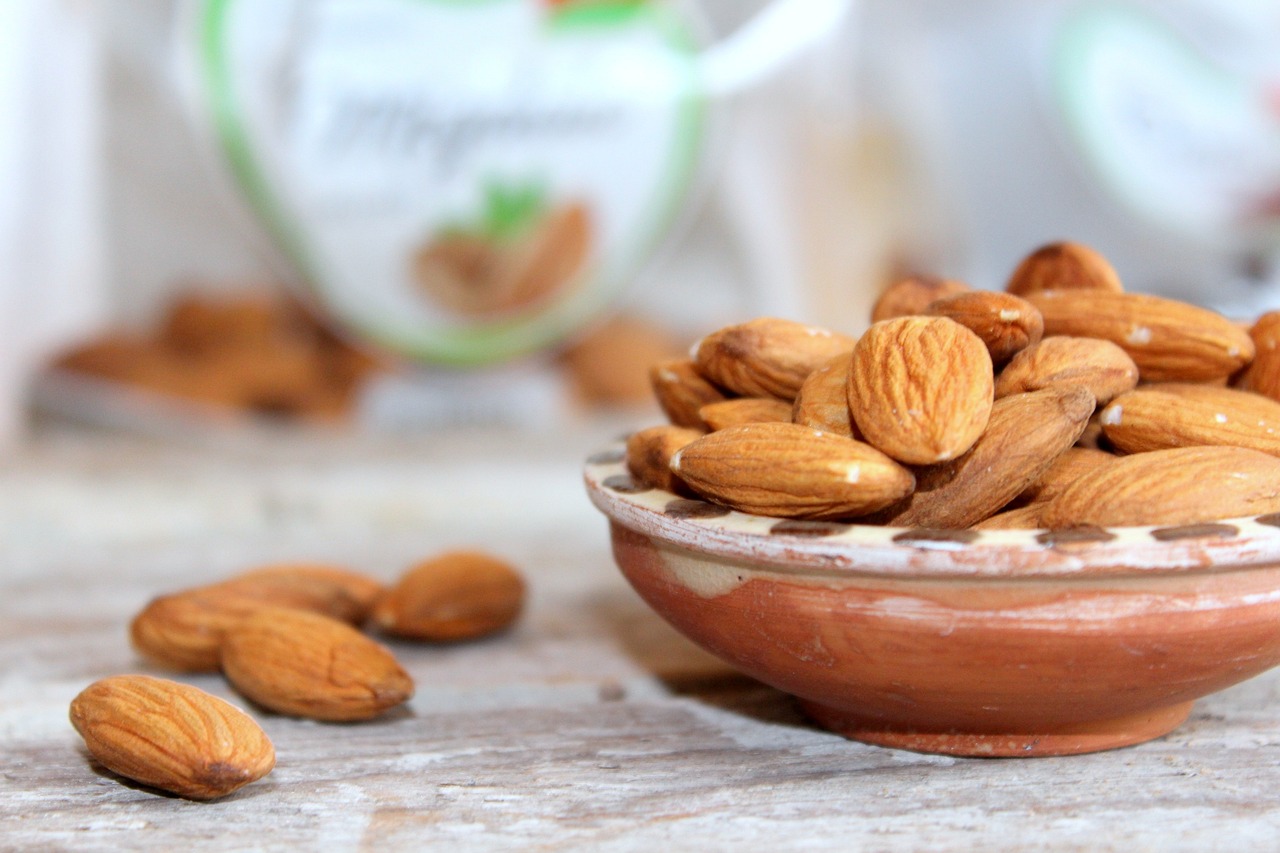
Almonds, known scientifically as Prunus dulcis, are highly popular nuts recognized for their flavor and health benefits, used in various cuisines for centuries. They can be enjoyed raw, roasted, as almond butter, or almond milk, and are packed with nutrients. Almonds provide healthy monounsaturated fats, plant-based protein, dietary fiber, vitamin E, magnesium, calcium, and phosphorus. A one-ounce serving contains about 160 calories, 6 grams of protein, 14 grams of mostly unsaturated fat, and 3.5 grams of fiber, making them a suitable snack for low-carb or keto diets. This article discusses the numerous health benefits of almonds, the scientific reasoning behind these benefits, and the importance of including almonds in your daily diet.
- Heart health- Almonds are beneficial for heart health due to their unsaturated fats, particularly monounsaturated fats, which can reduce LDL cholesterol while increasing HDL cholesterol. Consuming almonds can lower total cholesterol by 3% to 25%. They are also high in magnesium, which helps regulate blood pressure, reducing the risk of hypertension. Additionally, the antioxidants in almonds, such as vitamin E, protect cells from oxidative damage, promoting healthy circulation and arterial flexibility.
- Brain Function and Cognitive Health- Almonds, often referred to as “brain food,” are traditionally known to enhance brain function. They contain riboflavin and L-carnitine, essential for cognitive health. L-carnitine may enhance memory and learning. Additionally, the vitamin E in almonds provides neuroprotective benefits by reducing oxidative stress and inflammation, which are associated with cognitive decline and diseases like Alzheimer’s. Magnesium, present in almonds, supports nerve transmission and brain plasticity, promoting mental clarity and optimal brain function.
- Weight Management- Almonds are calorie-dense but can support weight loss or management when eaten in moderation due to their high fiber, protein, and fat content, which enhance feelings of fullness. Studies show that almonds can help control appetite and reduce hunger, leading to less overeating at later meals. Additionally, their healthy fats and protein can boost metabolism, further assisting in weight control. Research indicates that consuming almonds may also be associated with lower abdominal fat, contributing to better overall health and reduced risk of metabolic disorders.
- Blood Sugar Control and Diabetes Management- Almonds are a good snack for those with diabetes or anyone managing blood sugar levels due to their low carbohydrate content and high amounts of healthy fats, fiber, and protein. They have a low glycemic index, resulting in a gradual increase in blood sugar after consumption, which helps maintain stable levels. Additionally, almonds may improve insulin sensitivity, beneficial for individuals with type 2 diabetes. Their satiating properties can aid in weight control, an important factor in diabetes management.
- Bone health- Almonds are a valuable source of calcium, magnesium, phosphorus, and manganese, which are important for strong bones and preventing osteoporosis. They offer a significant amount of calcium, beneficial for those who are lactose intolerant or on plant-based diets. Additionally, phosphorus in almonds is vital for the growth and repair of bones and teeth, and regular consumption can enhance bone mineral density and lower fracture risk.
- Skin Health and Anti-Aging Benefits- Almonds are considered a beauty food because they are rich in vitamin E, antioxidants, and healthy fats that benefit the skin. Vitamin E offers antioxidant protection against free radical damage from UV rays and pollution, which can slow aging signs like wrinkles. The natural oils in almonds help to maintain skin moisture, keeping it hydrated, while almond oil is popular in skincare for its nourishing properties. Additionally, almonds contain compounds that enhance skin tone and texture by promoting cell turnover, resulting in a brighter complexion.
- Eye health- Almonds are rich in vitamin E, which is important for eye health. They help protect against cataracts and age-related macular degeneration by acting as antioxidants. Additionally, almonds and almond oil can keep the skin around the eyes hydrated, preventing dryness and irritation.
- Energy boost- Almonds are a great energy source thanks to their mix of protein, fiber, and healthy fats, offering consistent energy without affecting blood sugar levels. Their high protein and fiber content helps maintain steady energy throughout the day, while magnesium in almonds supports energy production at the cellular level, enhancing physical endurance and stamina.
Almonds are a nutritious powerhouse food with various health benefits. You can incorporate them into your daily routine by snacking on a handful, adding almond butter or milk to smoothies, sprinkling sliced almonds on salads, using almond flour in baking as a gluten-free option, or topping oatmeal, yogurt, or cereal with almonds for extra protein and healthy fats.
-Triparna







